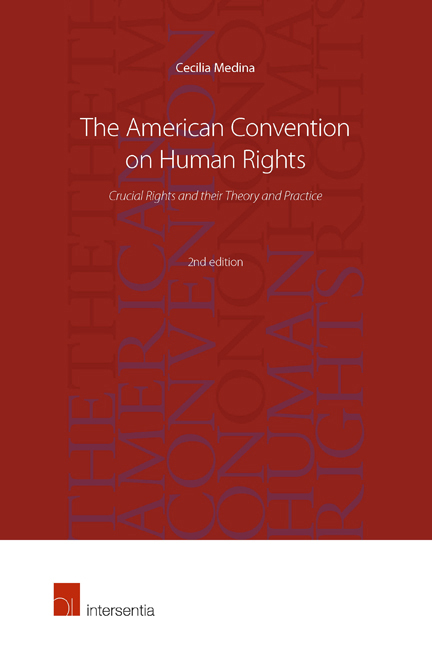Book contents
- Frontmatter
- Dedication
- Preface
- Acknowledgments
- Contents
- Table of Cases
- 1 The Court and its Circumstances
- 2 Disappearances
- 3 Right to Life
- 4 Right to Humane Treatment
- 5 Right to Personal Liberty
- 6 Right to Due Process
- 7 Principle of Legality, Freedom from Ex Post Facto Laws, and Right to Compensation for Miscarriage of Justice
- 8 Right to Judicial Protection
- Index
7 - Principle of Legality, Freedom from Ex Post Facto Laws, and Right to Compensation for Miscarriage of Justice
Published online by Cambridge University Press: 12 December 2017
- Frontmatter
- Dedication
- Preface
- Acknowledgments
- Contents
- Table of Cases
- 1 The Court and its Circumstances
- 2 Disappearances
- 3 Right to Life
- 4 Right to Humane Treatment
- 5 Right to Personal Liberty
- 6 Right to Due Process
- 7 Principle of Legality, Freedom from Ex Post Facto Laws, and Right to Compensation for Miscarriage of Justice
- 8 Right to Judicial Protection
- Index
Summary
Article 9
Freedom from Ex Post Facto Laws
No one shall be convicted of any act or omission that did not constitute a criminal offense, under the applicable law, at the time it was committed. A heavier penalty shall not be imposed than the one that was applicable at the time the criminal offense was committed. If subsequent to the commission of the offense the law provides for the imposition of a lighter punishment, the guilty person shall benefit therefrom.
Article 10
Right to Compensation
Every person has the right to be compensated in accordance with the law in the event that he has been sentenced by a final judgment through a miscarriage of justice.
THE PRINCIPLE OF LEGALITY: NULLUM CRIMEN SINE LEGE
Article 9 of the American Convention enshrines a basic principle of criminal law the Latin wording of which is nullum crimen et nulla poena sine lege. This constitutes “the principle of legality” explained by the Court in Berenson as follows: “The definition of an act as an unlawful act and the determination of its legal effects must precede the conduct of the individual who is alleged to have violated it; because, before a behavior is defined as a crime, it is not unlawful for penal effects”. It is a fundamentally important principle for the protection of several human rights, leading the Convention to establish it as an international State obligation that cannot be suspended, even in an emergency situation. This provision also enshrines the principle that a convict must receive a lesser punishment when a lesser punishment is established by law after the commission of a crime.
Like Article 8, Article 9 of the Convention applies to all criminal convictions, regardless of significance or scope. However, it does not apply to procedural law, because that law applies at the moment a procedural act is carried out, independently of the date of the commission of the offense. In the case of Liakat Alit Alibut, the Court relied heavily on case law of Latin American States and of the European Court.
- Type
- Chapter
- Information
- The American Convention on Human RightCrucial Rights and their Theory and Practice, pp. 335 - 348Publisher: IntersentiaPrint publication year: 2016



